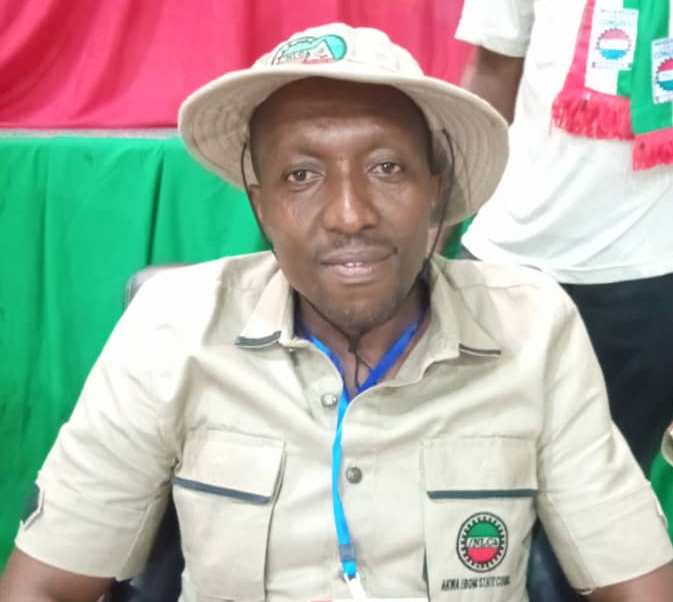By: Israel Umoh
The meeting between Nigeria Labour Congress, Akwa Ibom Council and the state government on the payment of new National Minimum Wage and Consequential adjustments to workers in the state ended in a deadlock, an investigation by Straigtnews has shown.
Though President Muhammadu Buhari signed the bill new Minimum Wage into law on April 18, 2019, and had paid it including arrears to its workers, some states have followed suit while others are about to pay.
A source in the labour circle confided in the online newspaper that there was a meeting between the NLC leaders and the state government officials led by Dr. Emmanuel Ekuwem, Secretary to the State Government at Government House, Uyo on Thursday, January 16.
The source further said though the state government agreed to pay the new minimum wage to workers, it did not accede to payment of consequential adjustments based on Federal government percentages to those on Grade Levels 07-14.
The meeting, according to the source, was botched owing to the inability by both parties to reach a truce on payment of consequential adjustments to some cadres of the state workers.
In a telephone interview with Straightnews publisher on Friday, January 17, Comrade Sunny James, the state chairperson of NLC, Akwa Ibom Council, affirmed “The meeting between Akwa Ibom State government and the state Labour Congress did not go well. The government has offered labour the Federal Government per centages but labour is insisting on the Federal salary table.
“Alternatively, the government should increase some per centages on top of the Federal per centages on Grade Level 07-14. That is where we are having challenges and the government has made up its mind that it would not increase more than that.”
According to him, “Some of our labour leaders tended to agree but NLC under my leadership will not accept it. So, we left the meeting between the government and the labour on Thursday, January 16 to brief our State Executive Committee members who said they would not accept the government’s proposal. Our stand is that the government must do something about Grade Levels 07-14. That is where negotiation in Akwa Ibom stands.
On the allegation that the state government has bribed the NLC leadership to back down on its present stand on payment of New Minimum Wage and consequential adjustments to workers, he dismissed it as false. “On the issue of giving money, I do not know where some people pick it from. I do not know if the government has given anybody anything to back down. I am not aware of it. If that had happened, I would not have walked out of the negotiation meeting with the state government officials.
“I had to go and brief my people that I would not agree or sign anything that does not favour the workers. Anybody who collects money cannot talk, look at another or disagree with another person talkless of walking out of Secretary to the State Government.”
On the NLC’s next line of action, if the state government does not accede to workers’ demands on payment of new Minimum Wage and consequential adjustments to workers in the state, the NLC boss responded “It is left for the government to call and tell us that they have changed their mind. If they do not change their mind, NLC at the national level has given us up to January 31, 2020, as the second deadline.
“We are trying to work towards that deadline to join them and to go an industrial action. Workers should get ready for it. That is the truth. Workers should get ready to protest where the government does not want to give them their dues.”
Speaking with Straightnews publisher on Friday, January 17, Effiong Essien, the state Head of Civil Service said “We are still on negotiation table with the organised labour. From what you said, it is wrong for anybody to walk out on government and other labour leaders to go and issue threats and incite workers against the government while the negotiation is ongoing.”
Essien, an elder of Lutheran Church of Nigeria, recalled “After an agreement was reached at the national on the new minimum wage, labour was asked to engage their state government and agree with on what the state can pay. This is what we are doing now.”

